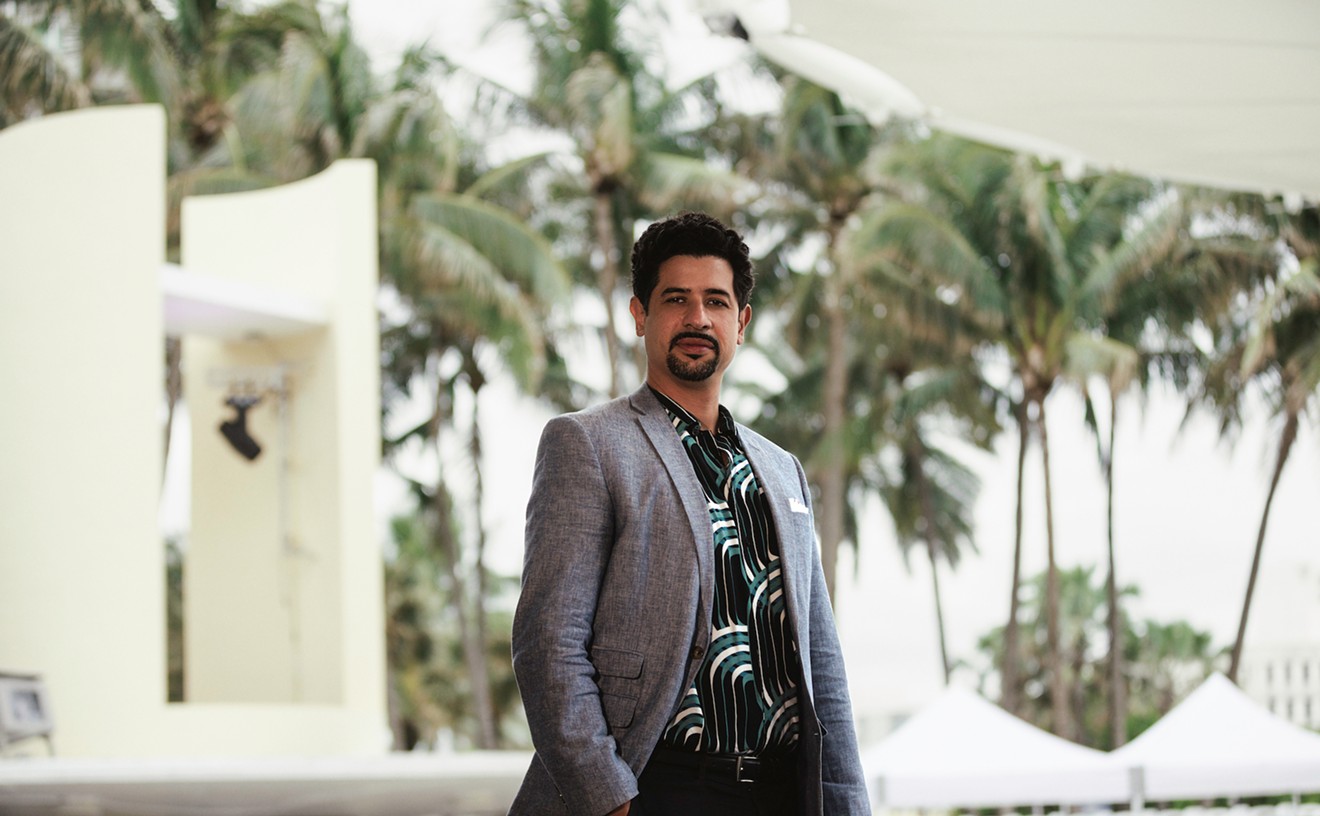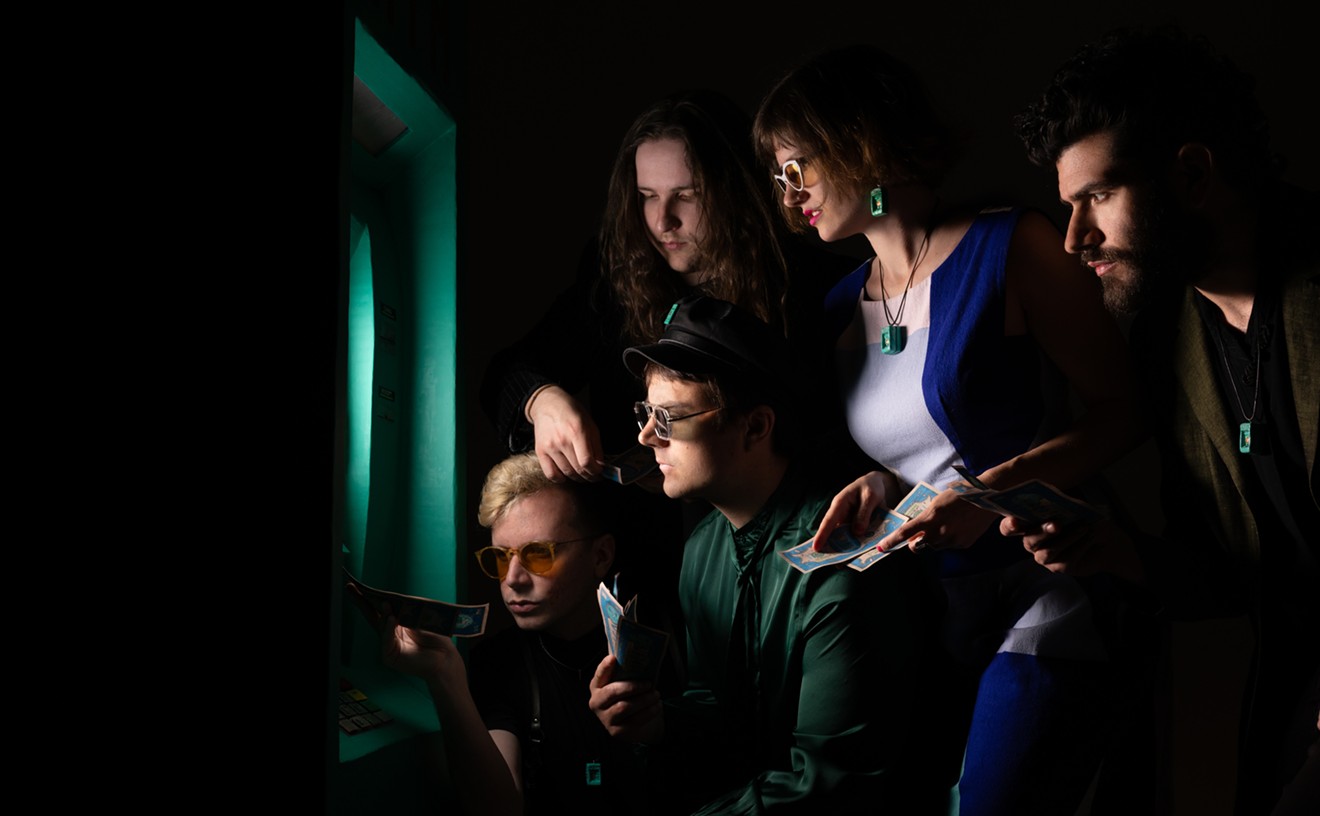The pure, cleansing water in this case is unleashed by the sounds of Roberto Perera, plucking his harp on Passions, Illusions, and Fantasies, his second release, which expands on the quiet poetry of last year's Erotica. Like its predecessor, Passions contains lush dreamscapes of musical introspection, but here it infuses stronger rhythmic currents. "O Que Sera," a prime example, begins gingerly and soon ripples with an aggressive beauty. Perera tenderly plays the harp at the start, leading into an all-out Latin jam, with crashing percussion, sprinting harp, dancing flute. These elements blend together in a triumphant musical free-
for-all, then the tune abruptly ends, begging for a round of applause.
The inclusion of this version of the familiar number was no accident. It was a conscious decision - one that likely will bring Perera's name prominence on Latin radio. "No Latin radio in the country would play Erotica, because it didn't have any music that was classifiable as a format," says Perera. "They have a format and only play salsa or ballads with words. If you don't belong to that area, that's it."
The presence of Latin rhythms marks the greatest change in Perera's sound since Erotica. Like his first album, Passions is rich with strong material. A straightforward rendition of "Ponteio," a Brazilian classical song, is enhanced by an extended harp solo during which Perera races rapidly along the harp strings. "Untitled" is another standout, a fluid piece in which guitar and harp mix, becoming nearly indistinguishable from one another. A great song, but it sure deserved a more memorable moniker.
The harmony, even union, of the guitar and harp gives Passions a classical, folk feel, simple and simply beautiful. While the two instruments together may sound novel to many in the United States, that combo is nothing new in other parts of the world. "It's been such a tradition to use harp and guitar together," Perera notes. "You never hear a harp alone in South America."
Passions' musical elements fit together nicely, quietly elegant rhythms with a dash of salsa, Caribbean sounds, jazz beats, and hints of so-called new age. The result of this musical melting pot sounds livelier and more collaborative than the dreamy Erotica. "This was the work of two years of playing live performances," Perera explains. "We did a lot of concerts, and we felt like people wanted to have something lively. We couldn't go so mellow." Passions sports a live feel, sounding more expansive and spontaneous. Perera opted to use his own band members on this effort, which helps to explain the in-concert, unrestrained nature, the tight rapport between the players.
Other instruments add to the more exotic, alluring musical flavor. The flute is featured heavily, as is the wondrous warbling of an electric and fretless bass. Steel drums make "Caribbean Sunset" a joyous island romp, as warm and inviting as late day by the sea. Percussion abounds. There's a lot going on here, many diverse sounds working together and alone in a finely tuned way.
The addition of new instruments and different beats did not make Perera's music any more classifiable, however. While he borrows from various genres, the result is fresh and unique, with no hint of musical plagiarism. While the jazz and new-age sections of music stores most often contain his music, to label it as such is terribly limiting. The currents run much deeper. "Don't worry about what it is," the harpist says. "Just buy the album and enjoy it."
His creations consist largely of change: changing and combining music types, rapidly shifting rhythms, and a change in Perera's harp. His "electroacoustic" Paraguayan harp, which creates flats and sharps, adds to the aural diversity. The traditional Paraguayan harp, which Perera also plays here and used exclusively on Erotica, has no such pedals.
While the technique may be complex, Perera's playing makes it sound simple, as he glides across the harp at a variety of speeds, plucking flawlessly, giving no indication of the tremendous skill and discipline the instrument demands. "The more you practice, the more ideas...," he says. "I love to experiment and practice things that aren't supposed to be one way or the other." The blending of opposites during practice leads to the musical intrigue of the recordings and, especially, of live shows. While the performances are collaborative, they begin with Perera's musical solitude.
The notion of spontaneous perfection may sound oxymoronic, but it really isn't. Evidence that it exists - and works well - lies in the fact that the recording of Passions took a mere five days, two and a half spent in practice jam sessions. "I compose by myself," Perera explains. "Most of the compositions come when I'm practicing. I use the band after I have the idea." Once he has the seed for a song, he gets input from the musicians, who add their suggestions for refining and actualizing Perera's visions. "Studio work involves a lot of pressure because everything has to be perfect," the harpist says. "The most difficult part of this album was thinking that I had to create something spontaneously. That was very hard."
Perera believes that "even though black and white is beautiful," he has "the gift of playing the Paraguayan harp in colors." Pressed for further explanation, he says, "I just think that, basically, there are a lot of musicians that learn to play an instrument and just...play it. Others, I guess God takes a few drops of that rainbow and the color and gives some people that extra passion. And when they play, they can communicate and reach people. Some players can be amazing and play an instrument, but they have no passion, no creativity. I think I have it - just because it was given to me. It's something you cannot learn. You have it or you don't. I didn't choose to have it. It just was given to me.










